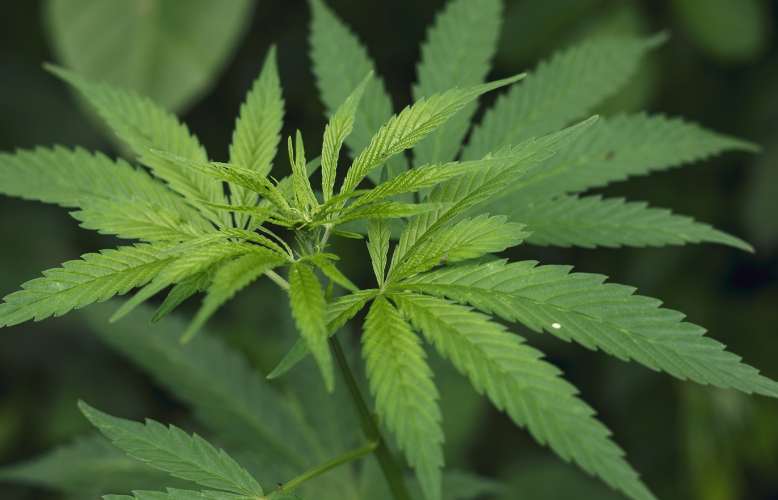Kentucky patients waiting for legal medical marijuana just got exciting news. Governor Andy Beshear announced that dispensaries should start selling cannabis products before 2025 wraps up, marking a big win for the state’s new program. This update sparks hope for thousands dealing with chronic pain and other conditions.
Beshear’s Bold Prediction
Governor Andy Beshear shared his upbeat outlook during a Thursday press briefing. He stressed that the medical marijuana program is pushing ahead without major delays. “I think most of our dispensaries now have their home address and are set about where they’re going to be,” Beshear said. He explained that inspections require actual product on site, but he believes operations will kick off soon.
This comes after years of effort to bring medical cannabis to Kentucky. Beshear, a Democrat, has championed the cause since taking office. He signed Senate Bill 47 into law in 2023, setting the stage for the program to launch on January 1, 2025. That bill allows patients with qualifying conditions like cancer, epilepsy, and severe pain to access cannabis legally.
The governor’s words address growing questions from residents eager for relief. Many have traveled out of state for medical marijuana, but now, local options seem within reach. Beshear noted that while the rollout has taken longer than some hoped, teams are working hard to get it right.

Program Timeline and Key Milestones
Kentucky’s journey to medical marijuana sales has hit several key points this year. The state approved its first dispensary in July 2025, with plans for an opening in the fall. That spot, in Beaver Dam, could start serving patients as early as October, according to state officials.
Cultivation is also ramping up. In July, a cultivator in Mayfield introduced the first medical cannabis inventory in Kentucky history. This step is crucial because dispensaries need tested products to pass inspections and open doors.
Here’s a quick look at the timeline:
- 2023: Governor Beshear signs SB 47, legalizing medical marijuana.
- January 1, 2025: Program officially launches, allowing patient registrations.
- July 2025: First dispensary approved for operations.
- Fall 2025: Expected openings, with sales potentially starting in October.
- End of 2025: Full dispensary operations predicted by Beshear.
These steps show steady progress, but challenges remain. Regulators must ensure safety and quality, which means thorough checks on growers and sellers.
Patients can already apply for medical cards through licensed doctors. Over 10,000 applications have poured in since the program began, based on early state reports. This high demand highlights how many Kentuckians see cannabis as a vital treatment option.
First Dispensaries and Economic Boost
The Post Dispensary in Beaver Dam leads the pack as Kentucky’s first approved site. Governor Beshear called it “great news” in a July announcement, predicting it would open this fall. More locations are lining up across the state, with most having secured addresses.
Cultivators play a big role too. Armory Kentucky LLC harvested the state’s initial crop, paving the way for supply. State rules divide growers into tiers based on size, ensuring a mix of small and large operations.
This new industry could pump money into Kentucky’s economy. Looking at nearby states, Missouri raked in $91 million in recreational sales and $30 million in medical sales in April 2023 alone, according to the Missouri Department of Health. Illinois hit over $2 billion in total cannabis sales in 2024, generating $490 million in tax revenue, as reported by Governor JB Pritzker.
Kentucky might see similar gains. Experts predict the U.S. legal cannabis market could reach $43 billion by 2025, up from $29 billion just months earlier, based on industry analyses from 2021. For Kentucky, this means jobs in farming, retail, and testing labs.
Local communities stand to benefit most. Rural areas like Beaver Dam could see new business and tourism. One farmer involved in cultivation shared that growing medical cannabis has saved his family farm from tough times.
Challenges and National Context
Not everything is smooth sailing. Beshear recently urged the federal government to reclassify marijuana, writing to President Donald Trump in July 2025. He pushed for “medical freedom” by moving cannabis to a less restrictive category, which could ease banking and research hurdles for states like Kentucky.
Opposition lingers in some circles. Critics worry about overuse or youth access, though the program limits sales to adults with medical needs. State rules ban smoking cannabis, allowing only edibles, oils, and other forms to reduce health risks.
On a national level, Kentucky joins 38 states with medical programs. The push started strong when Beshear issued an executive order in 2022, letting people bring medical marijuana from other states without prosecution. That move helped bridge the gap until local sales begin.
Patient stories add a human touch. One veteran with PTSD said waiting for legal access has been frustrating, but Beshear’s update brings real hope. “It’s about time we treat this like medicine,” he told reporters.
Looking Ahead: Impacts on Patients and Society
As Kentucky edges closer to medical marijuana sales, questions swirl about supply chains and pricing. Regulators aim for affordable options, drawing lessons from states like Michigan, where sales topped $6 billion in the second quarter of 2021, per industry trackers.
This development touches everyday lives. For families battling illnesses, legal cannabis could mean fewer pills and better quality of life. It also sparks talks on drug policy reform, challenging old stigmas.
Kentucky’s program emphasizes safety with strict testing and tracking. This approach might set a model for other Southern states still on the fence.
In the bigger picture, medical marijuana represents progress in healthcare choice. With sales possibly starting soon, patients won’t have to wait much longer.




